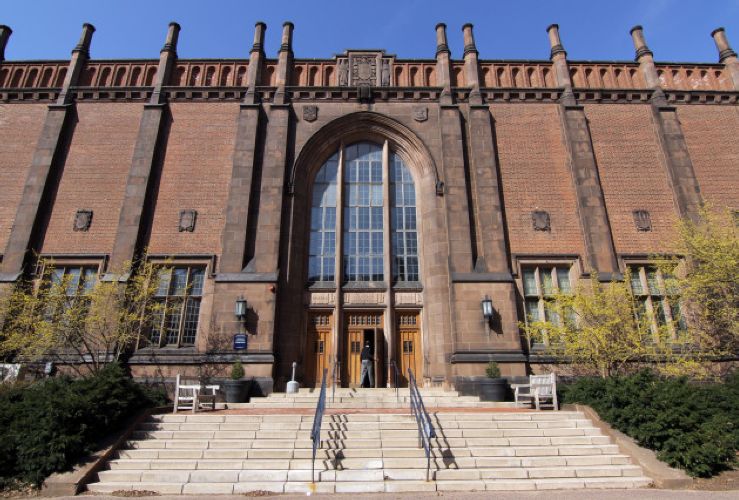
Wikimedia Commons
Students often disappear for hours at a time to participate in labs. However, for hours worth of work, they receive only half a credit toward their Yale College degree.
Last Saturday, the Yale College Council voted by majority to create a consistent set of criteria for lab-credit designation in all departments at Yale. Before the vote, project leader Kate Tanawattanacharoen ’19 outlined student and professor responses to survey questions regarding whether or not the amount of work required in their labs were accurate reflections of the lab’s credit designation. The presentation highlighted issues such as unequal workloads between labs worth the same amount of credits and disproportionately high amounts of writing required absent of a writing credit. Specifically, the council passed recommendations to assess the workload or required time for each lab before determining whether it should be a full or half credit and also to inform professors that the option to change a lab from half to full credit is available.
“It’s important to be transparent about having credit allocated where it should be so students can know what they are getting themselves into,” Tanawattanacharoen said. “There are a good portion of labs that are worth one credit and those are generally adequate, but there are also half-credit labs which are as much work as some one-credit labs.”
The YCC presentation drew from over 300 respondents to an undergraduate-wide YCC survey, as well as about 15 professors who teach labs. Tanawattanacharoen said the majority of professors interviewed believed their labs were worth the correct amount of credits with only two saying that their labs should be worth a full credit instead of half. According to the presentation’s analysis, full-credit labs or labs which professors thought could be worth one credit required a weekly quiz, weekly lab report and over three hours spent in the lab per week.
Still, some departments are already aware of the disparity. Tanawattanacharoen said the Physics Department has made a large effort to make its lab workload match its half-credit designation. The next step in the process is to see what labs already require and determine if there can be a common standard, she said. She added that the project is long term and will likely not be adopted within the next year, but will be able to serve as recommendations for the appropriate Yale College administrative group or task force.
Students interviewed largely agreed with the report’s findings and expressed the sentiment that the lab courses did not have a consistent workload and sometimes merited more than just half a credit.
“When I took the general-chemistry lab I was doing more work than I had ever done in any of my other classes at Yale,” Derek Kao ’18 said. “Right now I am taking a physics lab and its much easier because I do not have to spend as much time on it, only about three hours every week.”
Kao said he spent over four hours each week working on the general-chemistry lab in addition to lab reports which could be up to 12 pages each week. He added however that the workload was not consistent even within the same department since his organic chemistry lab required less work. Justin Shi ’18, who is taking Physics 206L and who took organic chemistry, agreed, noting that neither of his labs has too many requirements. Labs require less theoretical understanding than other Yale College courses, he said, and a student can do feasibly well in a lab just by following the instructions and without actually understanding why the lab is working.
Matthew Johnsen ’18, who took Physics 205, said his lab’s credit was an accurate reflection of the work. He said the lab met for three hours once a week and only two hours were needed outside of class. Still, for higher-level labs the work actually becomes quite substantial, he said, and it’s fair to make some labs full credit and other labs half credit.
“Sometimes I feel as if students do not believe their professors really care about how much work they are assigning their students in lab,” Tanawattanacharoen said. “However, there are definitely professors who are waiting to hear the results of this report and are trying to make sure they give the right amount of work in relation to how much credit the lab is worth.”
According to the Yale College admissions website on undergraduate research, there are over 800 labs at Yale College and the graduate and professional schools.







